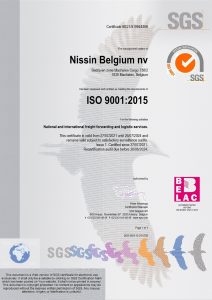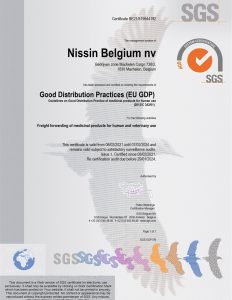Effective food logistics is essential to ensure that food products are efficiently and safely transported from producers to consumers. This involves managing everything from temperature control to regulatory compliance while keeping costs low and quality high. Understanding the key components of this complex process can help businesses maintain a seamless and reliable food logistics supply chain.
This blog explores the critical components of an efficient food shipping system, which ensures freshness, safety, and timely delivery.
What is Food Logistics?
Food logistics refers to the planning, implementing, and controlling the efficient movement and storage of food products. It encompasses various activities, including food transportation, warehousing, inventory management, and supply chain coordination. The primary goal is to deliver food products in optimal condition while minimizing costs and ensuring safety and compliance with regulatory standards.
Key Components of Effective Food Shipping
Transportation: The transportation of food products is a critical component of food shipping. Businesses must carefully select the appropriate modes of transportation, such as refrigerated trucks, cargo ships, or air freight, to ensure the safe and timely delivery of goods. Factors like route optimization, load planning, and temperature control are crucial in this stage.
Warehousing and Storage: Proper warehousing and storage are important for maintaining the integrity of food products. This includes temperature-controlled facilities, efficient inventory management, and adherence to food safety regulations. Businesses must ensure that their warehousing and storage solutions can accommodate the unique requirements of different food categories.
Temperature Control: Temperature regulation is a top concern in food and beverage shipping services, as many food items are perishable and require specific temperature ranges to maintain their quality and safety. Businesses must invest in advanced temperature monitoring systems, refrigeration equipment, and cold chain management strategies to prevent spoilage and ensure food safety.
Traceability and Visibility: Effective logistics relies on strong traceability and visibility systems. This includes using technologies like RFID, GPS, and blockchain to track the movement of food products throughout the supply chain. This data can help businesses identify and address potential issues, improve inventory management, and, consequently, enhance overall supply chain efficiency.
Collaboration and Partnerships: Successful food and beverage shipping & logistics often require close collaboration and partnerships with various stakeholders, such as suppliers, carriers, and regulatory authorities. By fostering strong relationships and open communication, businesses can streamline processes, mitigate risks, and respond more effectively to changing market conditions.
Regulatory Compliance: The food industry is subject to many regulations and standards, including food safety, labeling, and transportation requirements. Businesses must ensure that their logistics operations comply with all relevant regulations to avoid costly penalties and maintain consumer trust.
Navigating International Food Transport
International food logistics involves complexities due to varying regulations, documentation requirements, and extended transit times. Effective management requires knowledge of international standards, compliance with customs regulations, and strategic planning to mitigate risks like delays and temperature fluctuations. Ensuring proper labeling and documentation is essential to streamline international shipments.
Utilizing Advanced Technologies
Integrating advanced technologies into safe & hygienic food shipping and storage can greatly improve efficiency and reliability. Real-time tracking systems provide visibility into the location and condition of shipments, allowing for proactive management of any issues that arise. Automated routing and scheduling software can optimize delivery routes, reducing transit times and costs. These technological advancements enhance the overall effectiveness of logistics.
The Importance of Reliable Partners
Collaborating with experienced and reliable partners is important for successful food and beverage shipping & logistics. Trusted food and beverage shipping service providers, like Nissin Belgium, offer comprehensive solutions tailored to the specific needs of the food industry. Their expertise ensures safe, efficient, and hygienic transportation and storage of food products, helping businesses maintain high standards and meet consumer demands.
Contact Nissin Belgium for Superior Logistics Services
Nissin Belgium specializes in providing top-tier international food transport services. From efficient food shipping and storage to managing international logistics intricacies, we ensure your products reach their destination in perfect condition. Trust our expertise for safe and hygienic food shipping and storage, and benefit from advanced logistics strategies for the food and beverage industry.
Contact us at + 32 2 751 44 99 or write an email to HowCanIHelpYou@be.nissin-eu.comail with your requirements.






